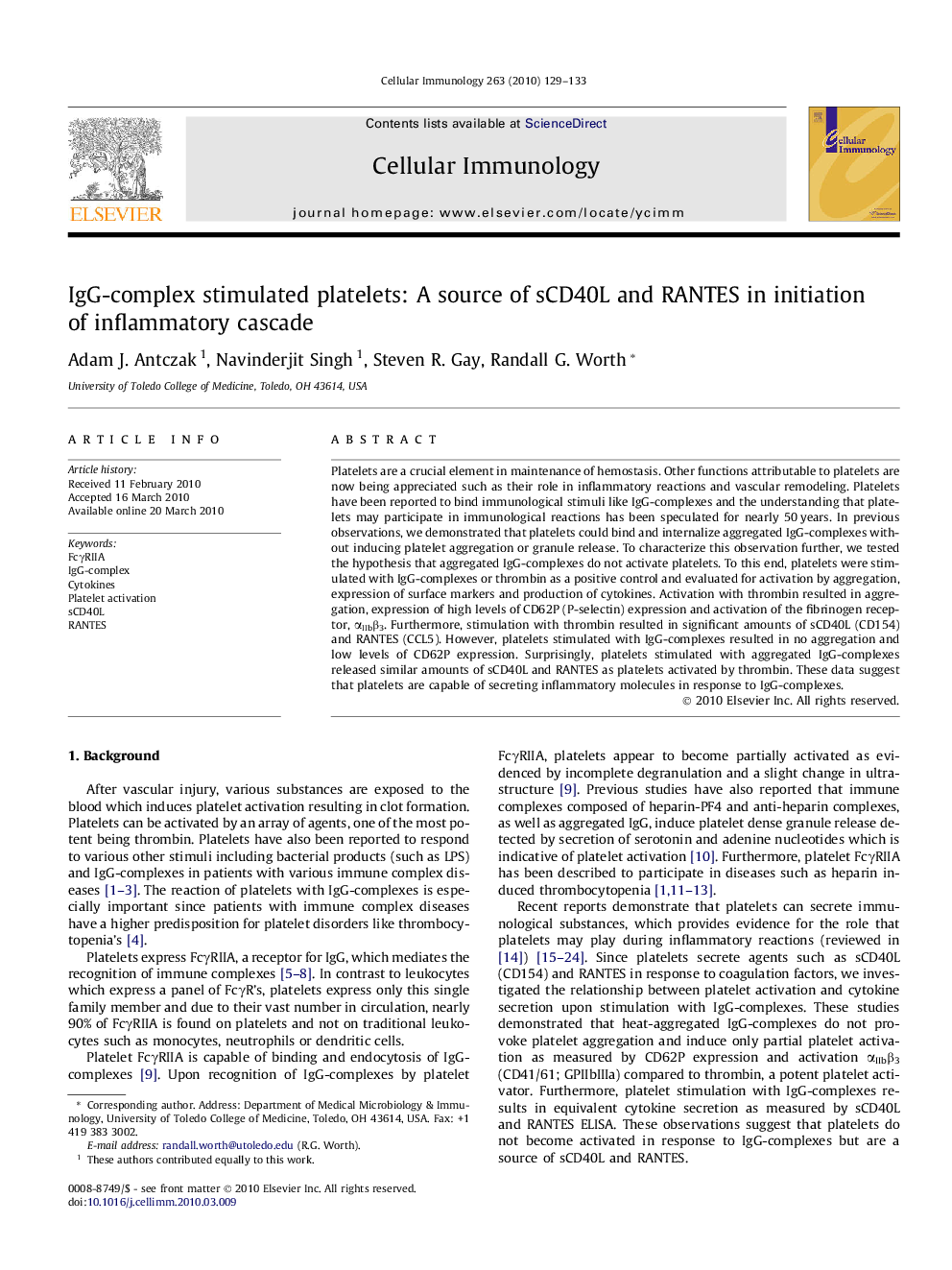| Article ID | Journal | Published Year | Pages | File Type |
|---|---|---|---|---|
| 2167659 | Cellular Immunology | 2010 | 5 Pages |
Platelets are a crucial element in maintenance of hemostasis. Other functions attributable to platelets are now being appreciated such as their role in inflammatory reactions and vascular remodeling. Platelets have been reported to bind immunological stimuli like IgG-complexes and the understanding that platelets may participate in immunological reactions has been speculated for nearly 50 years. In previous observations, we demonstrated that platelets could bind and internalize aggregated IgG-complexes without inducing platelet aggregation or granule release. To characterize this observation further, we tested the hypothesis that aggregated IgG-complexes do not activate platelets. To this end, platelets were stimulated with IgG-complexes or thrombin as a positive control and evaluated for activation by aggregation, expression of surface markers and production of cytokines. Activation with thrombin resulted in aggregation, expression of high levels of CD62P (P-selectin) expression and activation of the fibrinogen receptor, αIIbβ3. Furthermore, stimulation with thrombin resulted in significant amounts of sCD40L (CD154) and RANTES (CCL5). However, platelets stimulated with IgG-complexes resulted in no aggregation and low levels of CD62P expression. Surprisingly, platelets stimulated with aggregated IgG-complexes released similar amounts of sCD40L and RANTES as platelets activated by thrombin. These data suggest that platelets are capable of secreting inflammatory molecules in response to IgG-complexes.
